
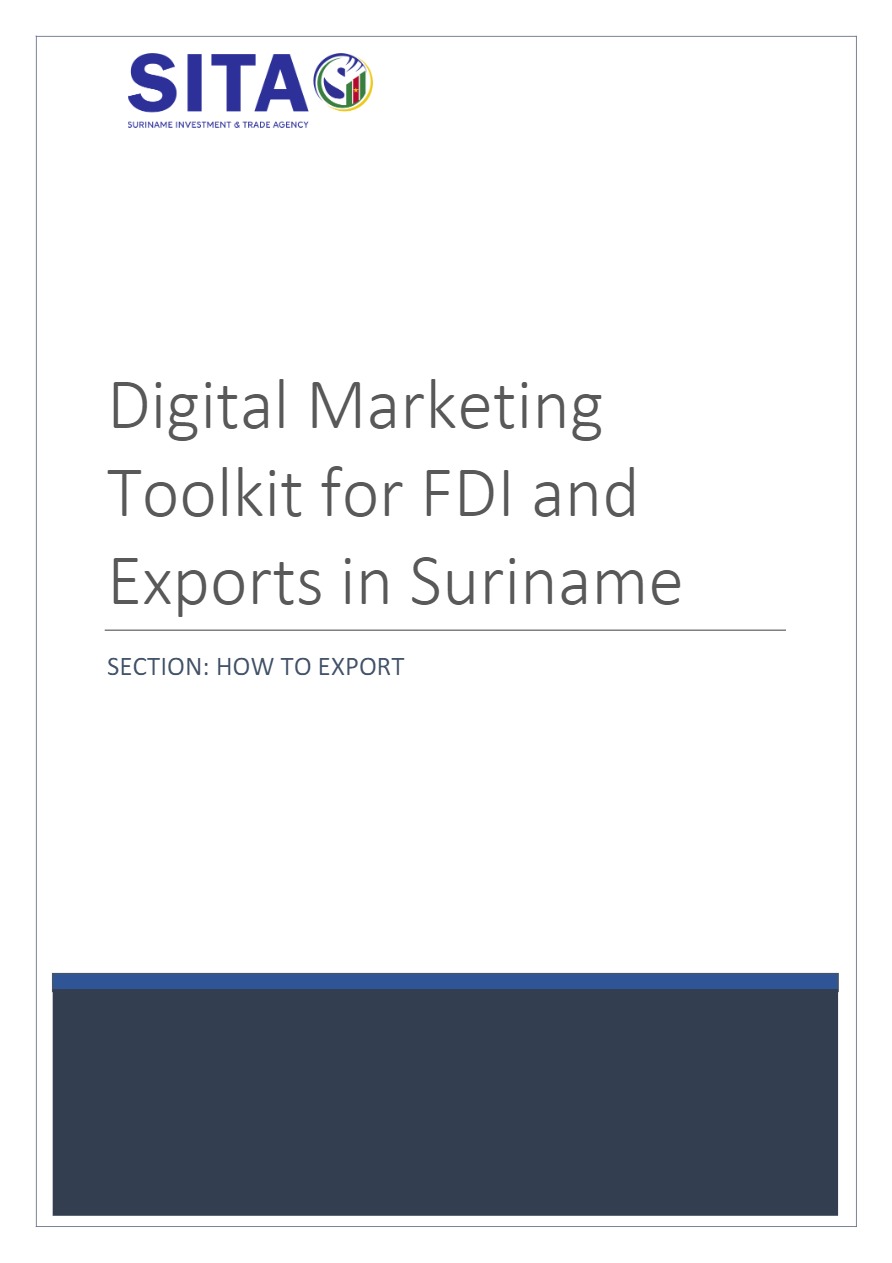
This investor roadmap consists of 5 steps. Select an option to see the information and following options for the next step.
The Trade agreements in force can be consulted here.
All commercial importers and exporters must be registered in:
 the Chamber of Commerce and Industry of Suriname.
the Chamber of Commerce and Industry of Suriname. Tax office – after having registered in the Chamber of Commerce and Industry of Suriname.
Tax office – after having registered in the Chamber of Commerce and Industry of Suriname. Customs Office – when ready for export, traders need to be registered in order to get an import/export number.
Customs Office – when ready for export, traders need to be registered in order to get an import/export number.Select your product
When selecting the product for export, traders must know that all items are freely exportable, except for those that appear on the list of prohibited/restricted products, included on the “Besluit Negatieve Lijst van 2003”.
The prohibited items are: antiques, chemical weapons and goods obtained illegally in Suriname.
The restricted goods, which require a license to export, are:
 Firearms, explosives and ammunition
Firearms, explosives and ammunition Medicinal plants
Medicinal plants Narcotics and psychotropic substances, pharmaceutical products for humans, and sera
Narcotics and psychotropic substances, pharmaceutical products for humans, and sera Endangered wild animal species listed in Appendix I of CITES and their products, including eggs
Endangered wild animal species listed in Appendix I of CITES and their products, including eggs Eggs, skins and hides, and other products of endangered species
Eggs, skins and hides, and other products of endangered species Processed and unprocessed wood, logs
Processed and unprocessed wood, logs Plants and animals with potential commercial applications as pharmaceutical, aromatic, dying and flavoring products
Plants and animals with potential commercial applications as pharmaceutical, aromatic, dying and flavoring products
Required documents
A number of documents are required both for export and transit goods. Also, certain goods also require a license in order to be exported.
All the information can be consulted in detail in the flipbook HOW TO EXPORT.
Taxes, charges and levies
The charges related to exports can be summed-up as follows:
 Consent fee: of 0,1% of the F.O.B value to all exports except those to CARICOM
Consent fee: of 0,1% of the F.O.B value to all exports except those to CARICOM Statistical fee: 0,5% of the F.O.B. Value, to all exports except for bauxite (2%)
Statistical fee: 0,5% of the F.O.B. Value, to all exports except for bauxite (2%) Additional taxes:
Additional taxes:
Standards and technical requirements
The Suriname Standards Bureau is in charge of developing and implementing standards and technical regulations for certification of goods and processes and for accreditations of laboratories and testing facilities.
In parallel, certain goods must meet a number of sanitary and phytosanitary requirements.
All this information can be consulted in detail in the flipbook HOW TO EXPORT.
Key tools for export
The country offers certain tools to facilitate the export processes, mainly:
The Suriname Electronic Single Window (SESW): a platform is actively used for the digital processing of the documentation that are essential for the export, import and transit of important goods.
The ASYCUDA world’s system for custom clearance: a tool facilitating the calculation, collection and accounting of customs duties.
All this information can be consulted in detail in the flipbook HOW TO EXPORT.
In order to begin the export process, it is advisable to:
 Hire a custom broker to help you throughout the process (mandatory)
Hire a custom broker to help you throughout the process (mandatory) Contact the key public entities involved in the export process and in charge of regulating the activity related to the goods you are planning to export.
Contact the key public entities involved in the export process and in charge of regulating the activity related to the goods you are planning to export. Key associations related to trade
Key associations related to trade Financial entities to look for financial support
Financial entities to look for financial supportAll this information can be consulted in detail in the flipbook HOW TO EXPORT.



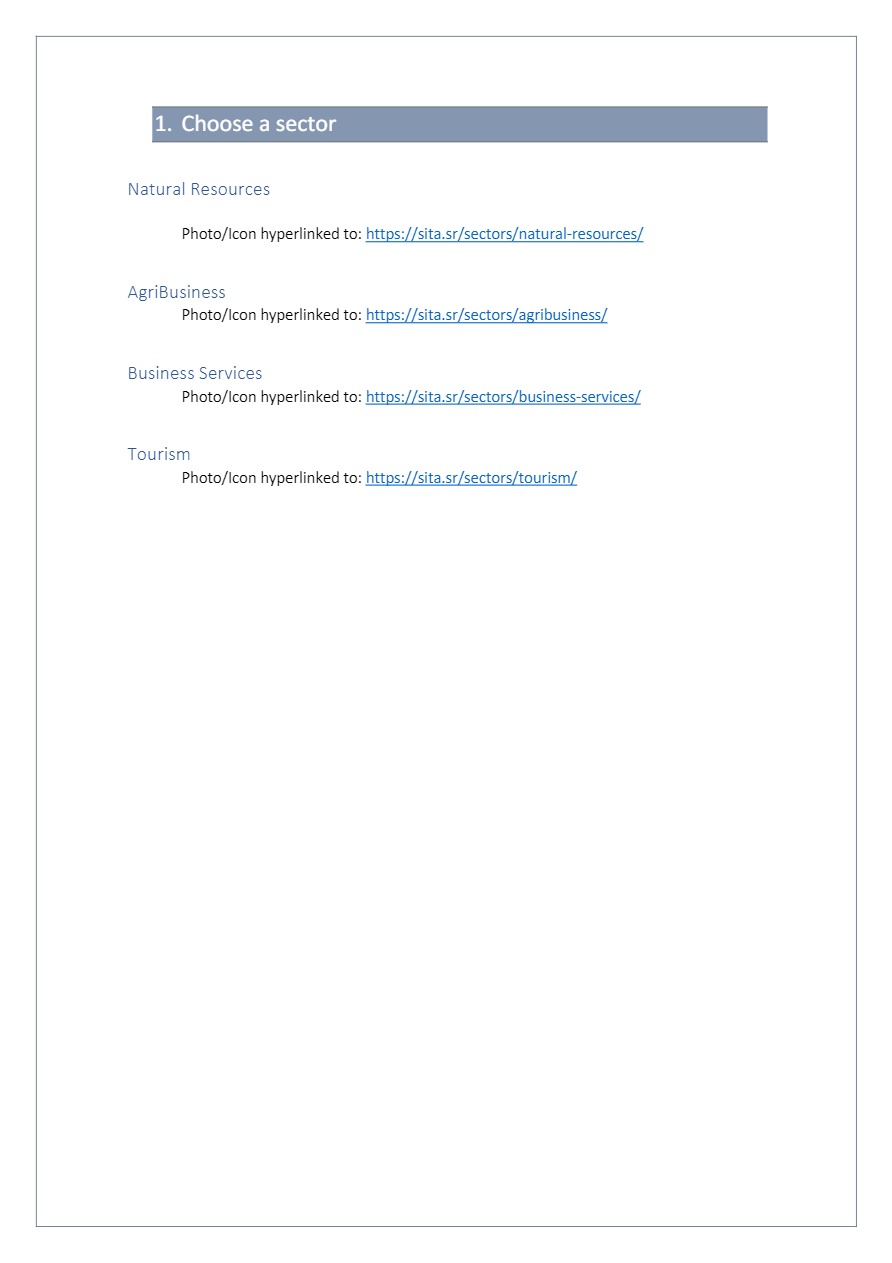

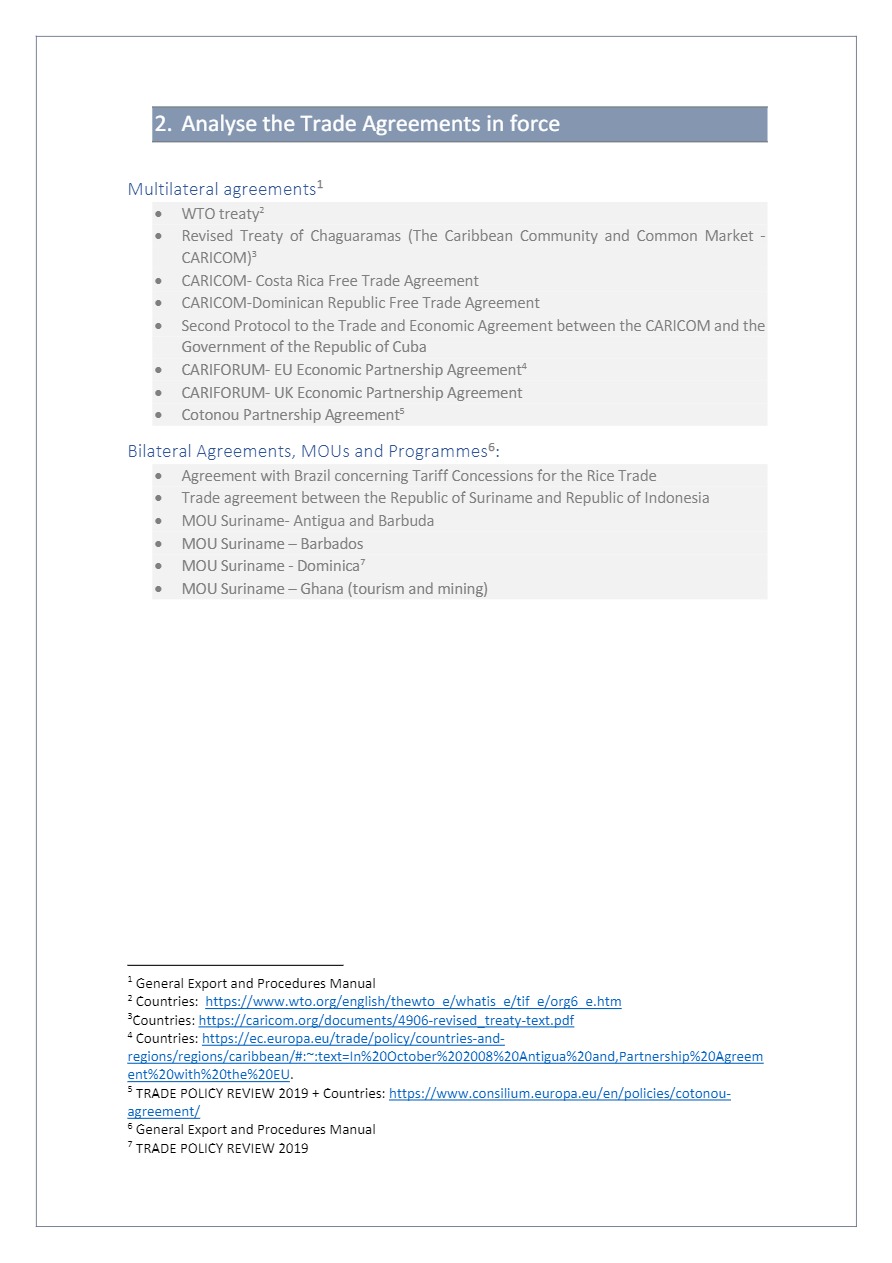

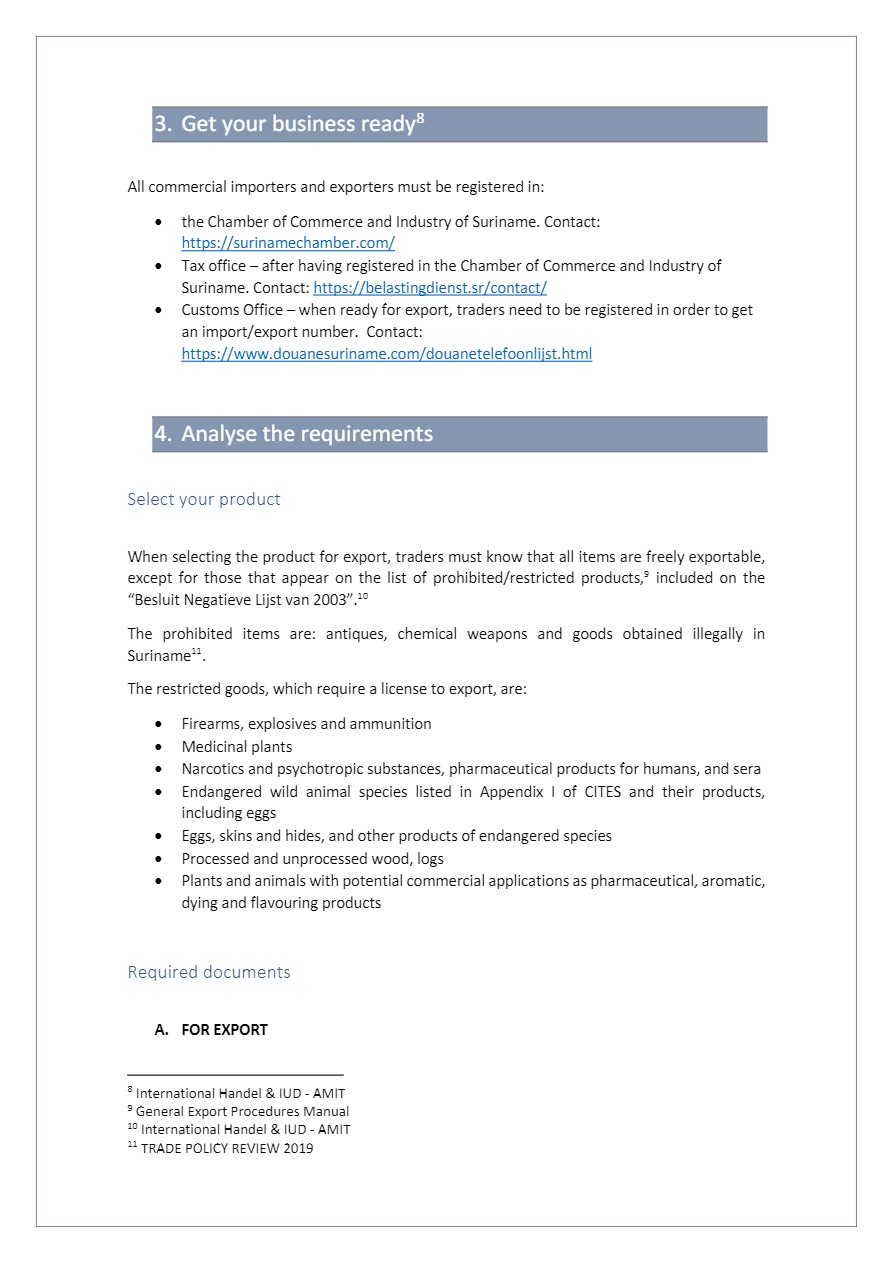

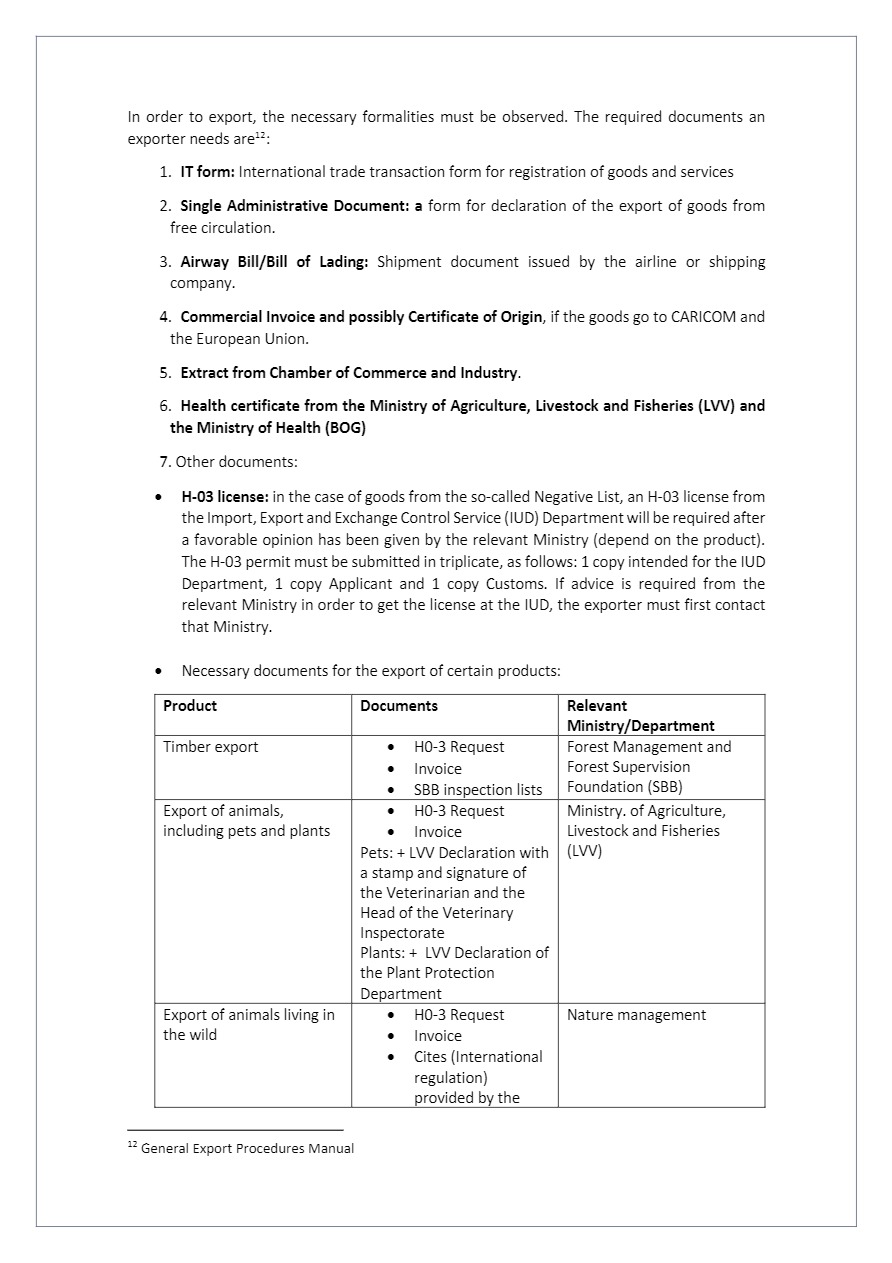

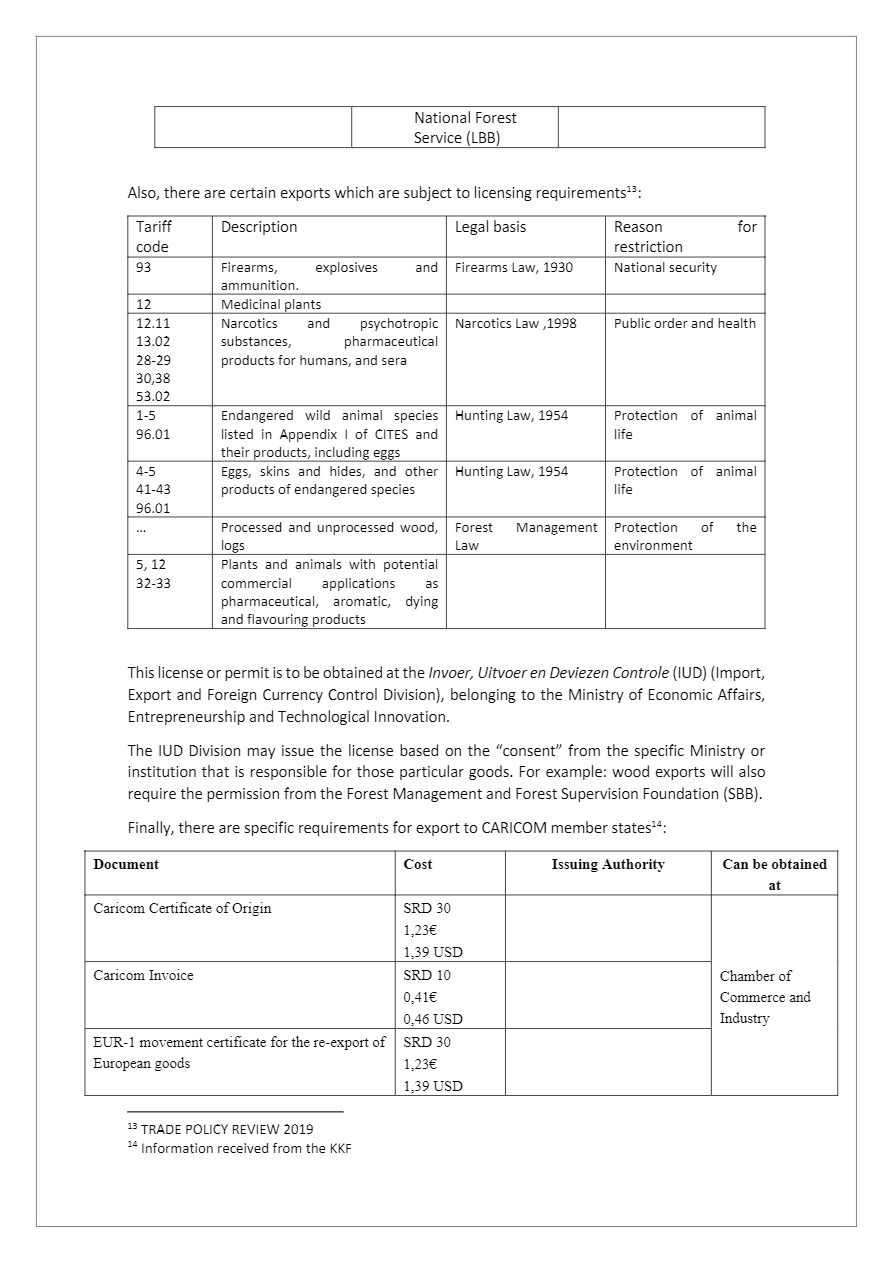

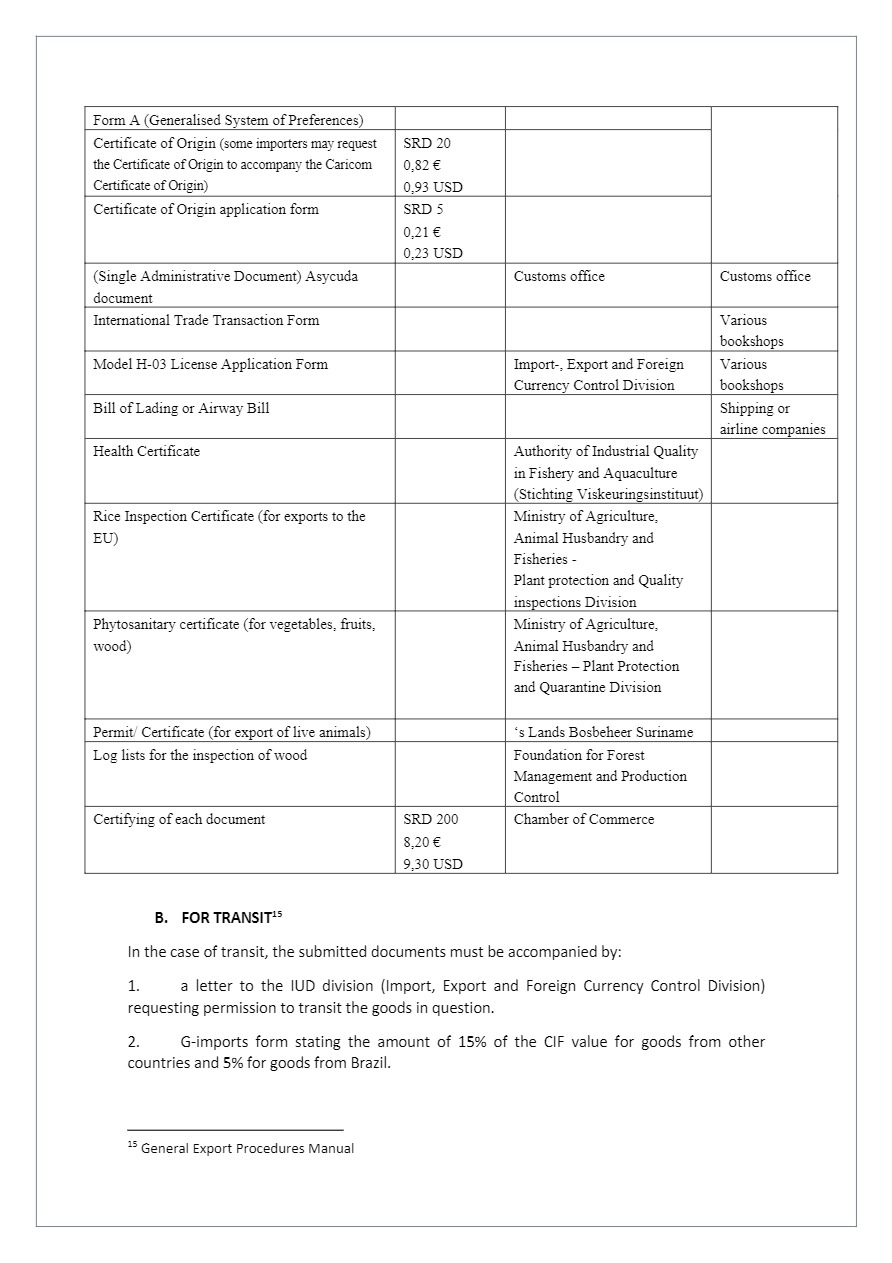

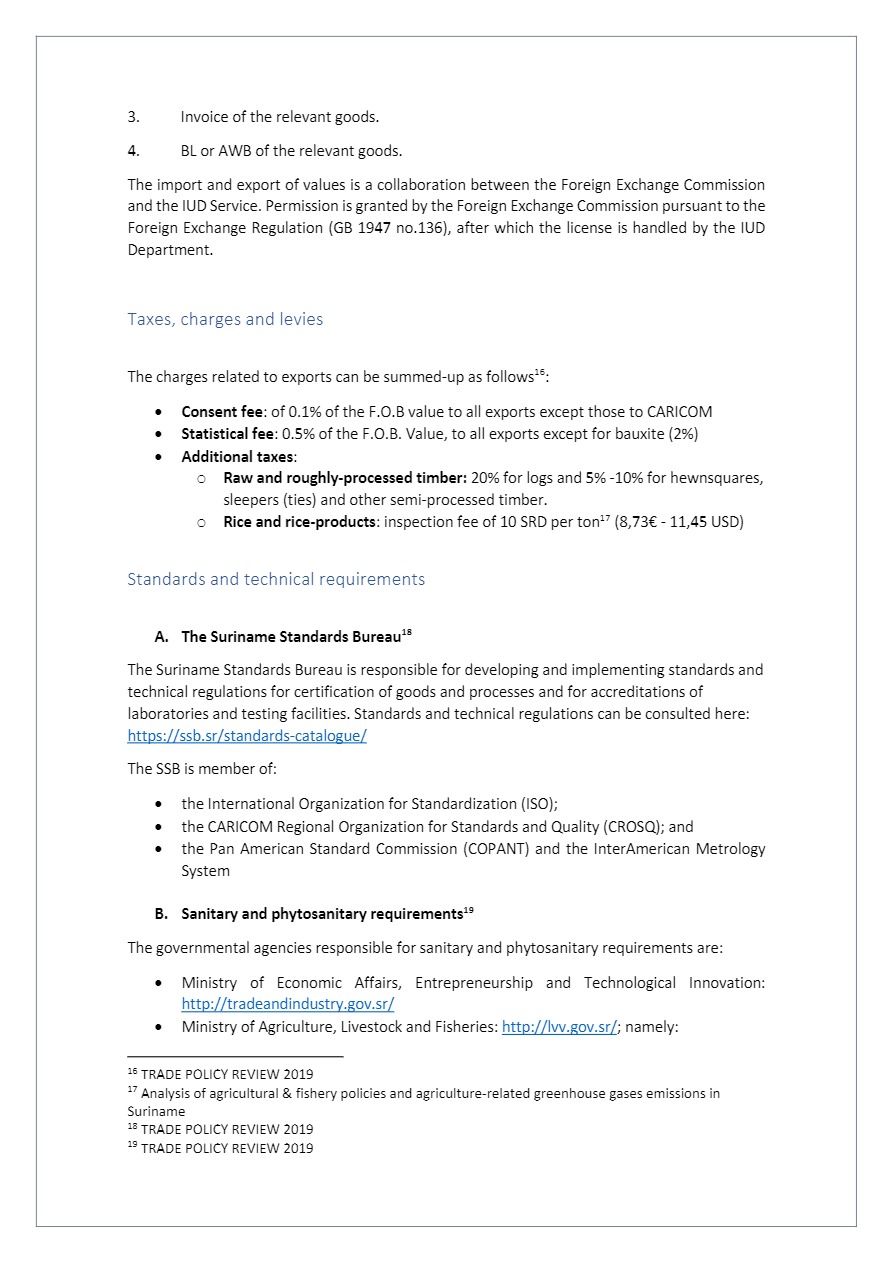

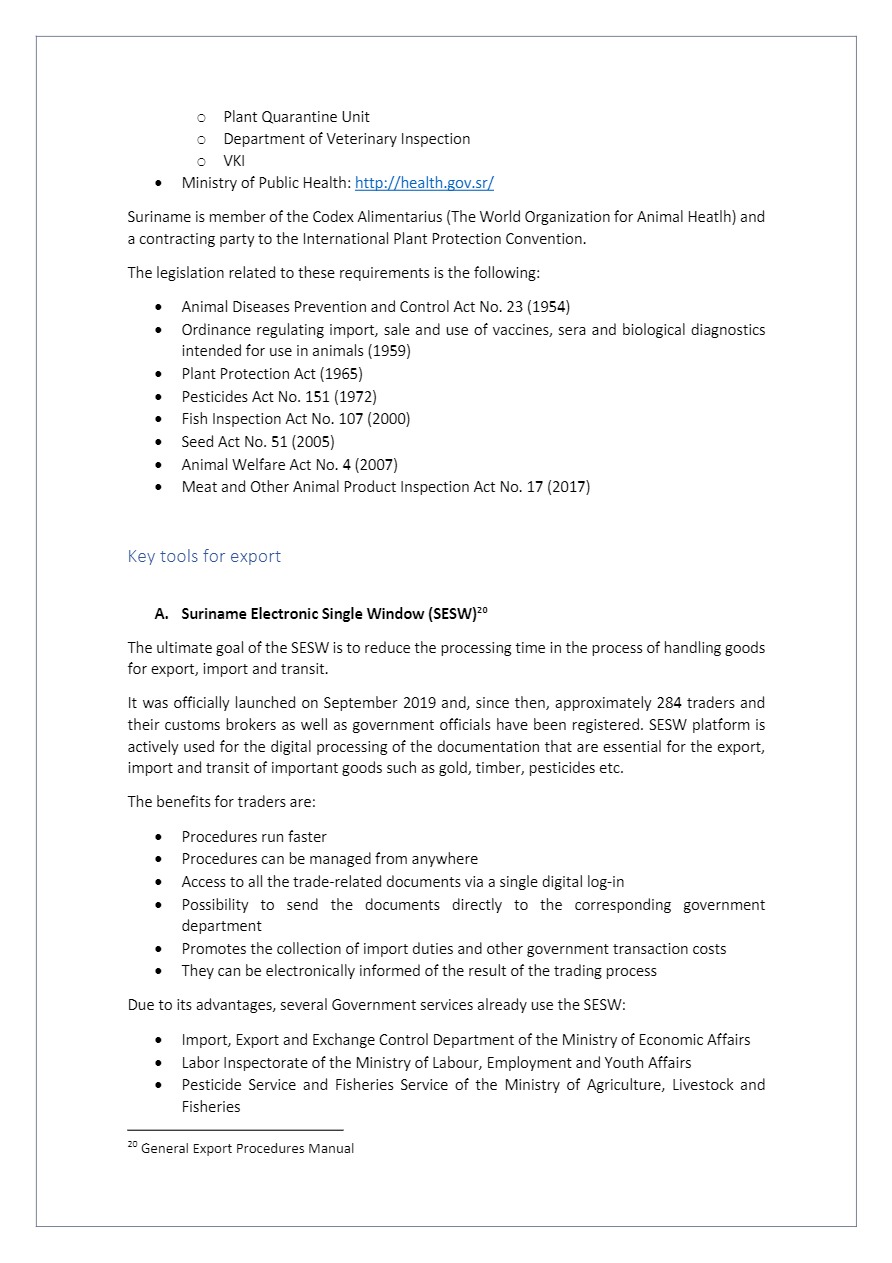

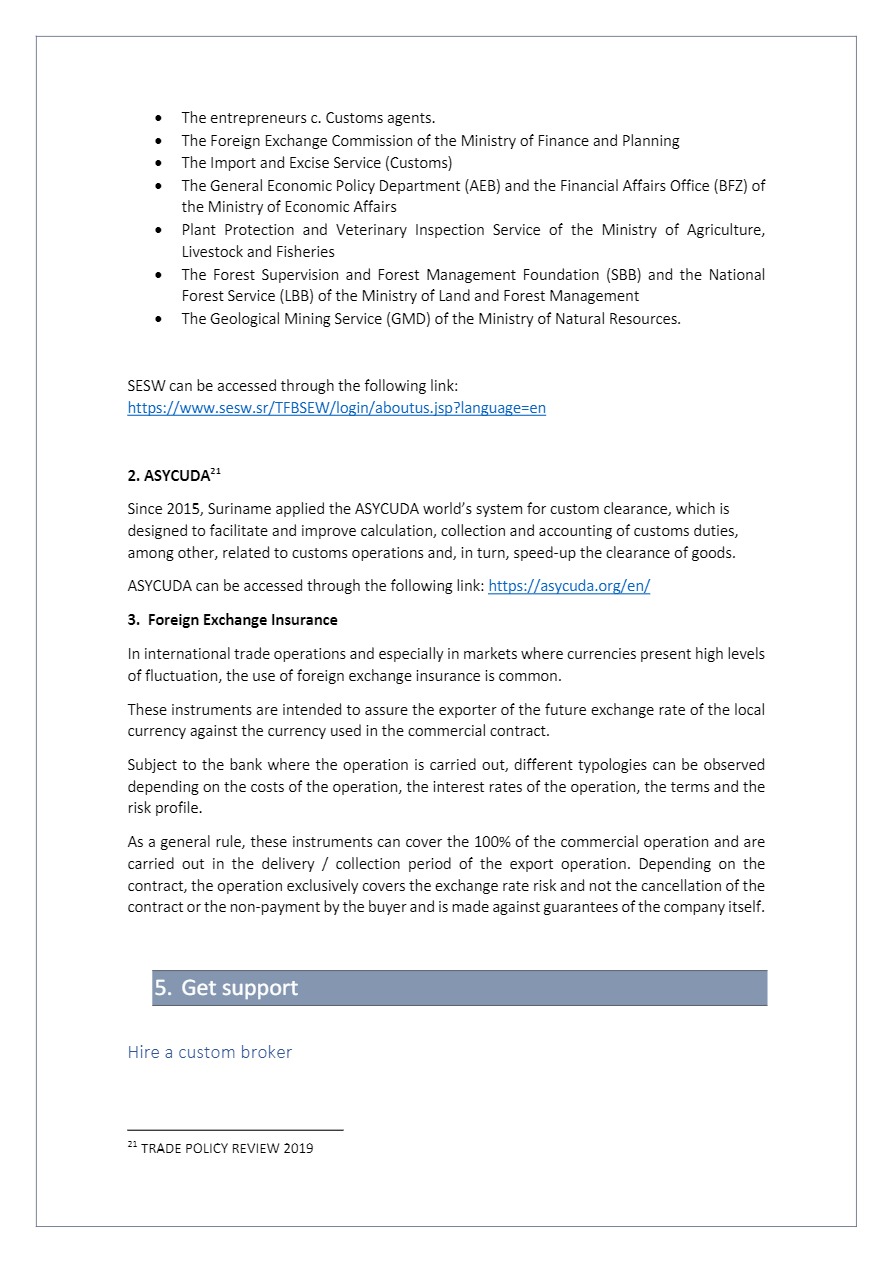

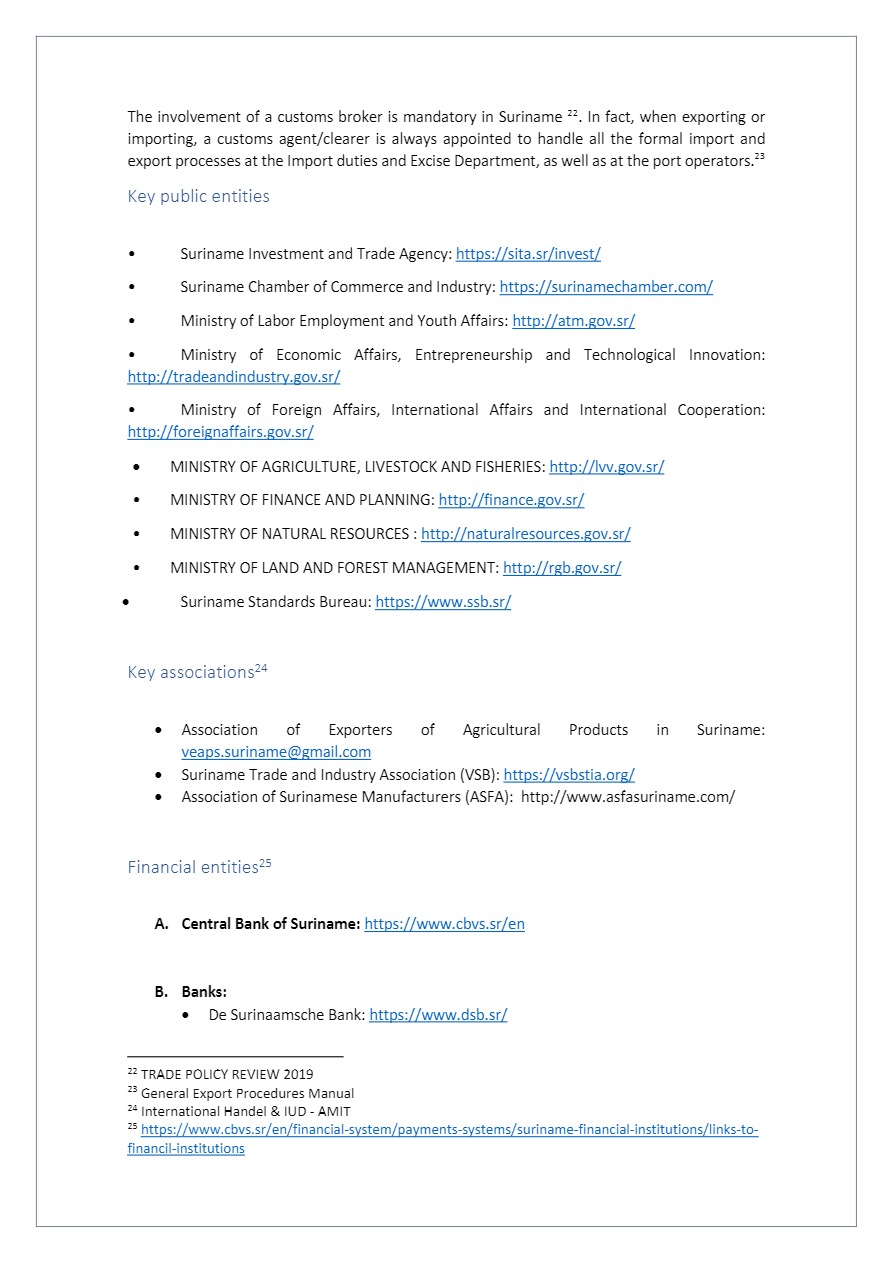

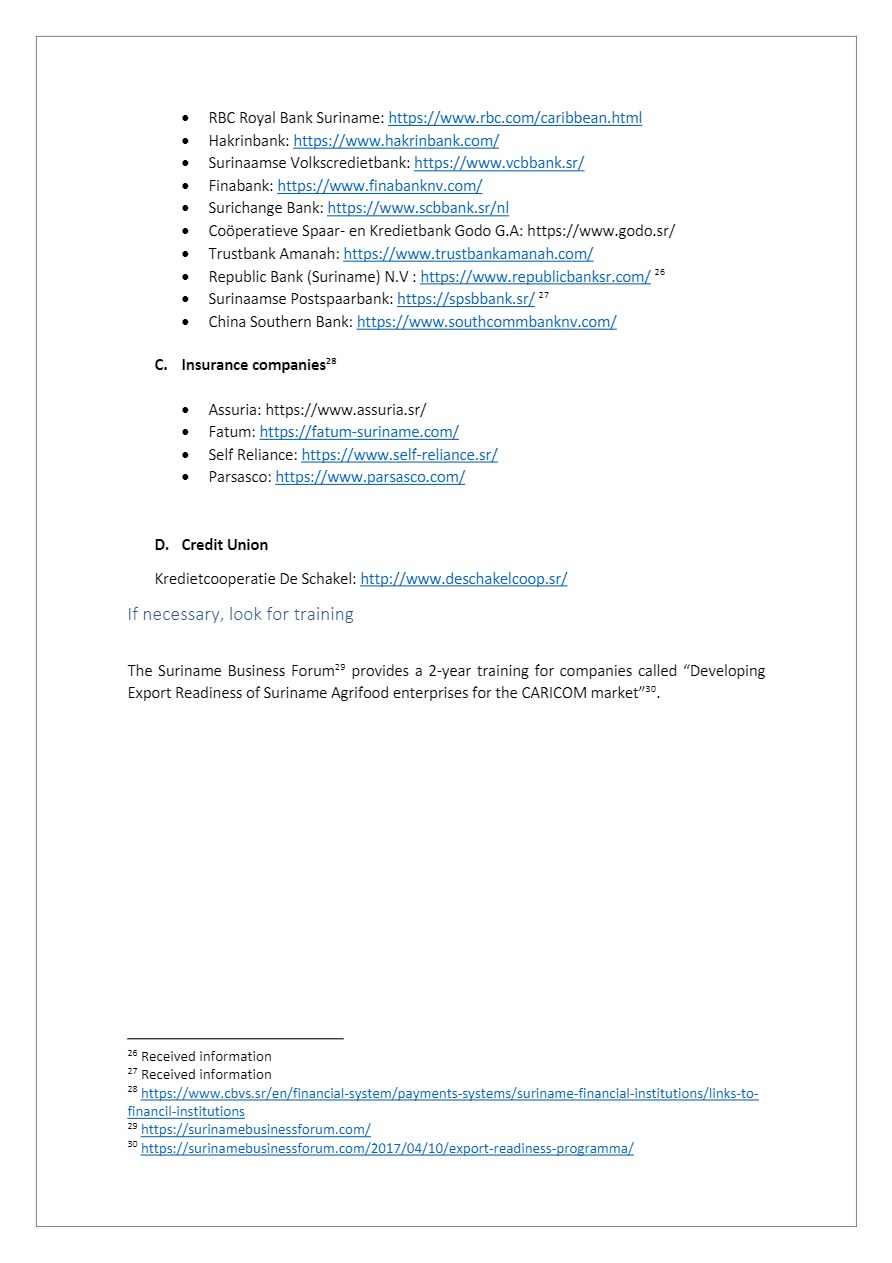
Download the HOW TO EXPORT guide here.
